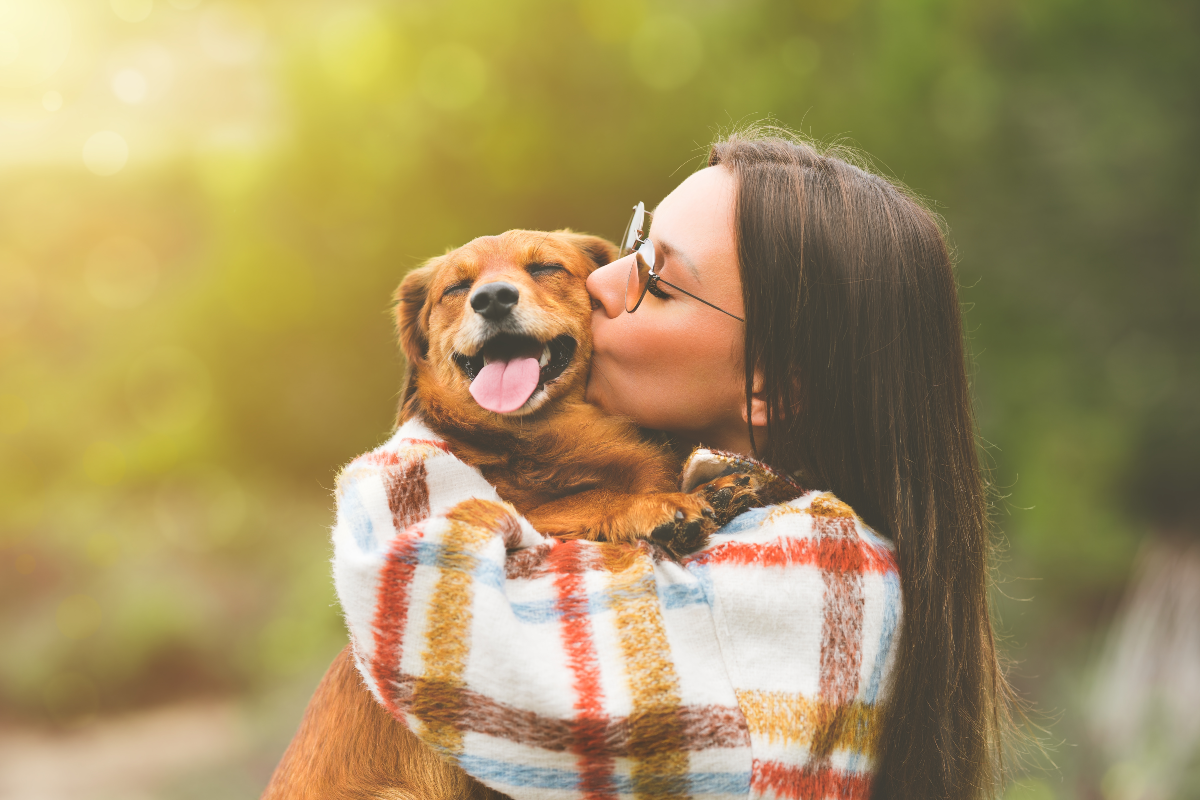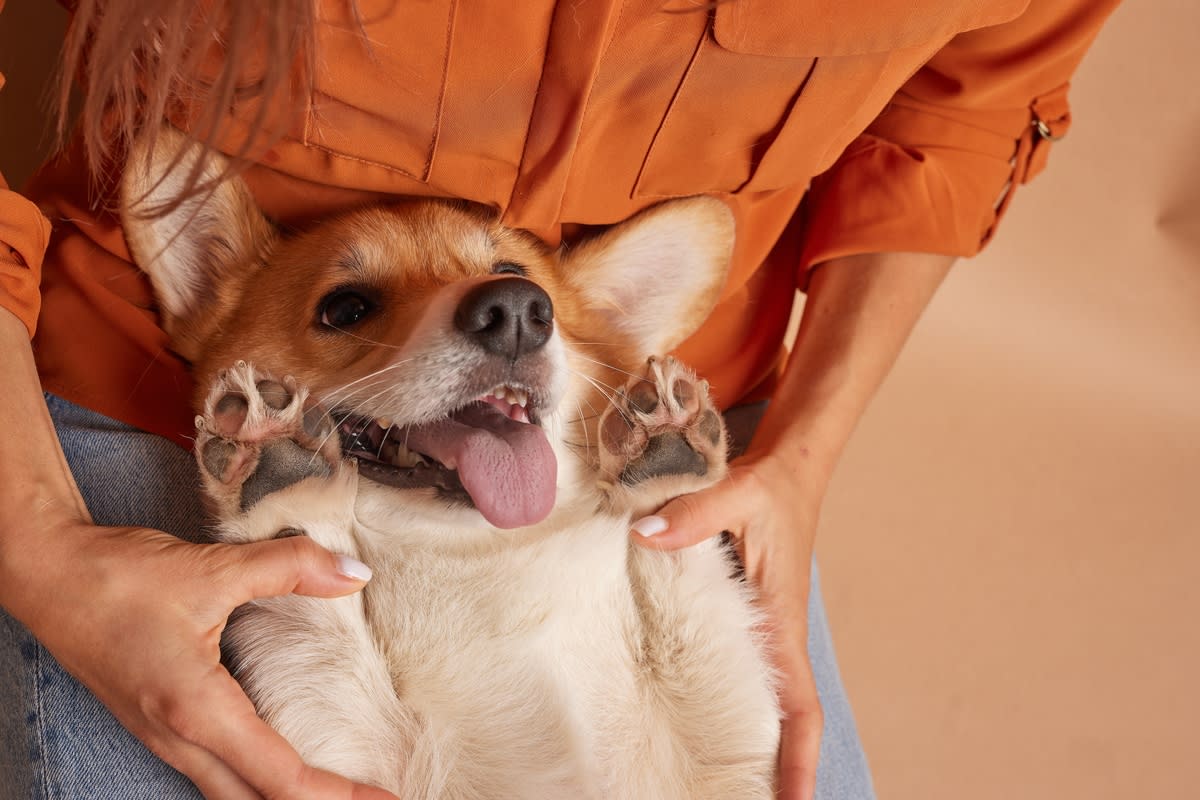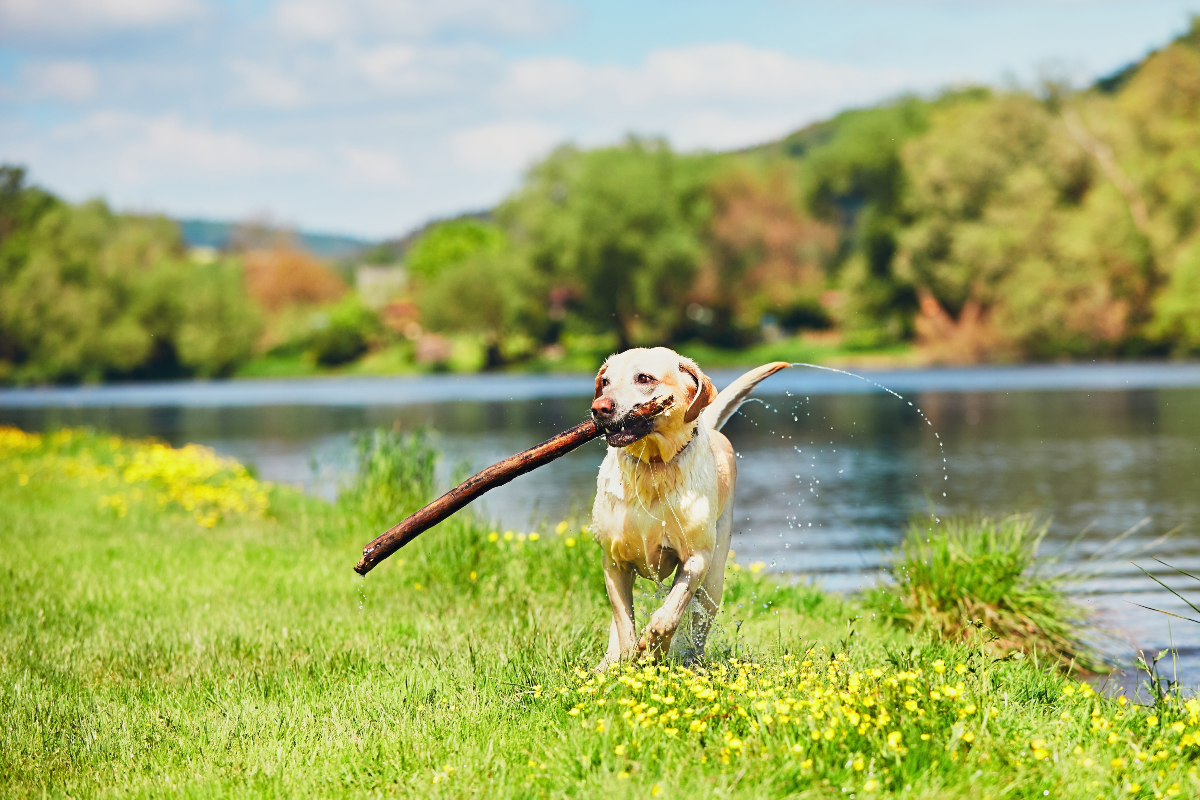4 Cute Signs a Dog Considers Their Human As Their Parent

Creative Cat Studio via Shutterstock
Do our dogs see us as their parents? Many a pet owner (myself included) will proudly call themselves "pet parents" because we see our pets as our little fur babies. The question is, do dogs reciprocate those familial feelings when it comes to their human owners?
While dogs might not have the same understanding of parent-child relationships as we humans do, I think it's fair to say that many of our four-footed friends see us not only as their best buddies, but as beloved parental figures as well. Here are a few adorable signs that your dog looks up to you in that light!
1. They Gaze into Your Eyes
In many different species across the animal kingdom, making direct eye contact is often perceived as a threat, or a display of dominance. The same is true of many canine species, including domesticated dogs themselves. If that's the case, though, then what does it mean when your pet pooch gazes adoringly up into your eyes?
Despite eye contact normally being considered a sign of aggression among dogs, there seems to be something about the bond between a pet parent and their pup that transcends this. A 2015 study helmed by Japanese animal behaviorist Takefumi Kikusui found that sustained eye contact between pairings of dogs and their owners raised levels of oxytocin (aka, the "love hormone") in the human participants, which in turn caused their dogs' oxytocin levels to rise in a positive feedback loop. The team also observed a few pairings of tamed wolves and their owners in their study, but the "oxytocin-gaze positive feedback loop" was only present in the pairings with dogs, not the wolves.
Kikusui's team drew parallels between the oxytocin-inducing gaze between dogs and their owners and the "mutual gaze" between a human mother and their infant. Both gazing behaviors create the same type of oxytocin positive feedback loop, suggesting that dogs have not only evolved this form of interspecies attachment alongside us, but that its bonding effect is similar to that shared by human parents and their children. If your heart swells with love when you gaze into your pup's eyes, chances are they're feeling the love right back!

sergey kolesnikov via Shutterstock
2. They Love Cuddling Up to You
Who doesn't love a good snuggle sesh? If your dog can't get enough of cuddling up with you on the couch or sleeping by your side, it's a strong indicator of their affection for you. Some pet experts have suggested this might be another indicator of a parent-child-like bond!
"Gentle touching and nuzzling mimic maternal affection between puppies and their original dog moms," veterinarian Rebecca Greenstein spoke to Business Insider. "These physical activities induce the release of the feel-good hormone, oxytocin, in both species."
If you want to see the hard science, check out this 2019 study from S. Marshall-Pescini et al., which found that positive interactions between dogs and their owners, including cuddles, raised the levels of oxytocin in both parties. I doubt any dog parents will find those results shocking, though!
Related: Woman Has Silver Labrador She ‘Birthed’ Walk Down the Aisle at Her Wedding
3. They Look To You for Comfort and Assurance
Has your dog ever checked your expression with a "side-eye" when faced with something new, or run up to you as if asking for help when dealing with an unfamiliar situation? If your dog looks to you for assurance and guidance, that's another possible indicator that they see you as their guardian.
In 2016, researchers from the University of Vienna wanted to see if dogs displayed a "secure base effect" similar to that exhibited by human children. In layman's terms, human children look to their parents as a "secure base" when navigating new situations, and the researchers wanted to see if dogs would behave the same way. During testing, the dogs were challenged with maneuvering a food reward out of an interactive chew toy under three different scenarios: one where their owners were absent, one where their owners were in the room but standing by silently, and one where their owners were actively cheering them on.
What did they find? Over all, the dogs were far more motivated and spent more time problem-solving with the chew toy when their owners were there than when they were absent. Whether or not the owners were verbally encouraging them on or quietly standing by had little impact on the dogs' motivation; it appeared that the owners' mere presence was comfort enough for the dogs. This suggests that, just like human kids do with their parents, your dog looks up to you as their "rock" when facing new or intimidating situations!

Jaromir Chalabala via Shutterstock
4. Your Dog Likes Bringing You 'Gifts'
Your dog may sometimes bring you a ball or a tug rope as a sign that it wants to play with you. But what about when it brings you "gifts" that aren't toys, like your shoes, or a blanket, or other random objects? Some animal experts think that this could be a sign that - you guessed it - your dog sees you as its leader.
According to a piece on "gift-giving" behavior from Wag Walking, wild canines will present part of their prey to their pack leader after a hunt as a sign of "submission and respect." Some have theorized that domesticated dogs mimic this deferential behavior by bringing random gifts to their human owners.
Of course, this is just one popular theory among many. Other theories suggest this behavior could be a way of channeling their excitement to see you, or that it could even be a learned behavior ingrained in dogs by our human ancestors. Still, it's food for thought, especially if your dog always greets you with your slippers every day after you get home!
What It All Means for Us
Definitively answering the question of whether or not our dogs literally see us as their parents is a tricky one. Again, dogs don't have the same understanding of the complexities of parent-child relationships as we do. Also, animal experts seem to agree that our dogs are aware that we're not dogs, and therefore know that we're not actually their biological parents.
That being said, when you look into the research, it becomes clear that the psychological bond between a dog and their owner is very similar to, if perhaps not exactly the same as, that between a human child and their parent. Think about that the next time your fur baby welcomes you home with a goofy smile and a wagging tail!
Looking for more PetHelpful updates? Follow us on YouTube for more entertaining videos. Or, share your own adorable pet by submitting a video, and sign up for our newsletter for the latest pet updates and tips.
